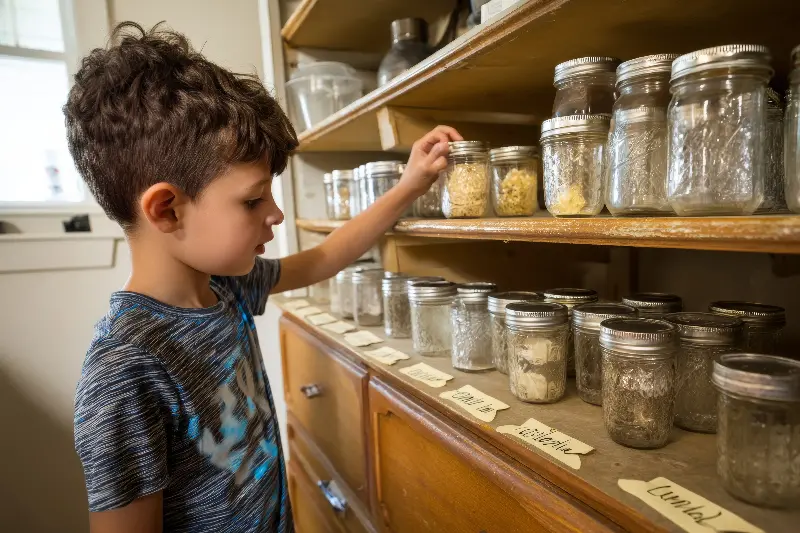Learning English can open up a world of possibilities for children, enhancing not just their academic achievements but also their ability to connect with people globally. As international communication and access to resources grow, strong English skills are more valuable than ever. But while schools lay the foundation, home is where kids can truly shine with the right, engaging support. Parents play a pivotal role in nurturing a love for language—not just through homework help, but by building an inspiring and interactive environment. Here are five fun, creative, and effective at-home practices that will help your child become confident and capable in English.

Make Reading Magical
Nothing sparks a love for language quite like a good story. Reading aloud to your child, even into their tween years, brings immense benefits. Start with books that match their interests, whether that’s adventures with talking animals or mysteries to solve. As they grow, let them choose books on their own—giving children autonomy is proven to increase their motivation to read. Don’t just limit yourself to storybooks. Magazines, comics, and non-fiction books broaden vocabulary and knowledge in exciting ways. Some parents create reading rituals—like “Family Book Night”—which can turn reading into a cherished routine.
Interactive reading is especially effective. Pause to ask questions, predict what might happen next, or discuss the characters’ choices. These conversations naturally enhance comprehension and critical thinking. It’s also fun to read together by taking turns, acting out dialogues, or using funny voices. Enthusiasm is contagious, so when you show excitement about reading, your child is sure to follow.
Everyday English in Action
Language comes alive in daily life, not just during formal lessons. Encourage children to use English in simple, everyday scenarios. For example, when cooking, talk about the ingredients, steps, or even write a recipe together. During shopping trips, ask your child to find items using English labels or make a shopping list in English. These tasks not only build vocabulary, but make language relevant and useful.
Household routines are filled with opportunity—setting the table, cleaning up, or planning a family outing can become language lessons with a playful twist. Even something as simple as labeling household objects with sticky notes can turn the home into an immersive language environment. Making English practical and playful demonstrates to kids that language isn’t just for exams, but for life.

Tech-Savvy Learning Tools
Children are naturally drawn to technology, and parents can harness this enthusiasm with online resources and apps designed for language learning. There are countless interactive games and digital stories that make English learning enjoyable, challenging kids to solve puzzles, earn rewards, or follow along with animated adventures. Quality educational platforms adapt to the child's skill level and give instant feedback, making practice both fun and effective.
Podcasts and audiobooks are another treasure trove for language learners. As kids listen to native speakers, they pick up pronunciation, rhythm, and new vocabulary. Choose stories or topics your child enjoys—everything from space exploration to fairy tales. Listening can be a relaxing activity before bed, during car rides, or while drawing, and even short daily exposure can make a noticeable difference.
Creative Communication and Expression
Encouraging your child to express themselves creatively can supercharge their language skills. One proven method is starting a family journal or diary where everyone writes a short entry each day about their experiences. Younger children might draw pictures and label them with words; older ones could write longer reflections or poems. Over time, this not only improves written skills but shows children how language can be a powerful tool for self-expression.
Role-playing is another engaging practice. Have a pretend shop, restaurant, or travel agency set up at home—take turns being customer and staff, using English throughout the exchange. If your child enjoys performing, encourage them to put on mini-plays or puppet shows in English. These activities build vocabulary, confidence, and conversational skills in a non-pressure, playful setting.

Connecting with the World
One of the most inspiring motivations for learning English is the opportunity to connect with people and cultures beyond your own. Find a pen pal or participate in a language exchange with a child from another part of the world, using email or supervised video calls. Children quickly realize that English is a bridge to friendship, and this real-world purpose can be far more meaningful than any test score.
Expanding horizons can also happen through cultural exploration—watch movies or TV shows in English with subtitles, cook international dishes while learning about their origins in English, or explore English-language songs and sing along as a family. These experiences not only improve language proficiency but also foster curiosity and empathy.
Parents don’t need to be language experts to make a powerful difference. Enthusiasm, encouragement, and a little creativity go a long way in helping kids build a strong foundation in English. Focusing on engaging, everyday practices ensures that language learning isn’t a chore, but a joyful journey—one that opens hearts, minds, and doors to the future.
